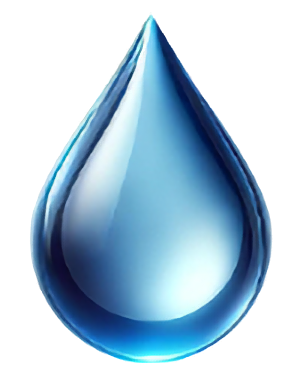- OMNI offers testing and analysis for water quality across multiple industries.
- Easy and effective way to ensure control equipment is functioning properly.
- OMNI keeps customers ahead of the competition with cutting edge technology.
- OMNI helps customers ensure treatment programs are effective in preventing corrosion and biofouling.
- OMNI provides customers with the knowledge they need to successfully monitor and operate their water treatment systems on their own.
Water Quality Services & Solutions
Treatment Advantages
Chemical Level Monitoring
Chemical level monitoring is essential in water treatment processes to ensure the safety, efficiency, and compliance of the system. Here are some key aspects of chemical level monitoring
Importance of Chemical Level Monitoring
1.
Safety Prevents overflows and leaks that could lead to hazardous situations for personnel and equipment.2.
Process Efficiency Ensures optimal chemical usage, reducing waste and improving product quality.3.
Regulatory Compliance Meets industry standards and environmental regulations, avoiding legal penalties.4.
Water Quality Maintains the desired chemical balance to ensure the treated water meets quality standards.
The OMNI Method of Chemical Level Monitoring
1.
Continuous, On-Line Monitoring Uses automatic instrumentation to provide real-time data on chemical levels. This method offers higher precision and reliability compared to manual monitoring.2.
Remote Monitoring Utilizes remote control systems to collect vital information and detect problems with the treatment process. These systems can measure water usage, conductivity, flow, pH, and other parameters.
Type of Sensors Used
1. Radar Level Sensors: Utilize microwave signals to measure liquid levels without direct contact, making them ideal for corrosive chemicals.
Filter Media
At OMNI Water Consultants, Inc., we understand the unique challenges rural water districts face in maintaining clean, safe water supplies. Our experienced team specializes in helping communities enhance their water treatment systems through professional media installation and filter upgrades. We offer personalized, cost-effective solutions to ensure your system meets the highest standards of water quality and efficiency. Our filter media products are produced from the highest quality anthracite, sand, and gravel available. Our high-performance filter media improves service flows and longer filter runs. Media is available to be drop-shipped worldwide direct from our source, or we can arrange mixed media loads to be hand-delivered to your plant in any quantity needed.

Anthracite (All Grades and Sizes)
Support Gravel (All Grades and Sizes)
Filter Sand (All Grades and Sizes)
Green Sand
Media – Profiling, supply etc…
Filter media analysis is a critical aspect of water treatment processes. It involves evaluating the characteristics and performance of the materials used in filtration systems to ensure they effectively remove contaminants from water. Here are some key points about water treatment filter media analysis:
Key Components of Filter Media Analysis
1.
Particle Size Distribution This involves determining the range of particle sizes in the filter media using methods like sieve analysis. The effective size (ES) and uniformity coefficient (UC) are important parameters.2.
Media Depth and Type Different types of media (e.g., sand, anthracite, garnet) are used based on their specific properties. The depth of the media can affect the filter's performance and operational efficiency.3.
Media Replacement and Maintenance Regular monitoring and testing are essential to determine when media needs to be replaced or topped up. This helps maintain the filter's efficiency and prolong its lifespan.4.
Operational Considerations Factors like flow rate, backwash frequency, and chemical cleaning are considered to optimize the filter's performance.5.
Performance Evaluation Assessing the filter's ability to remove contaminants, maintain water quality, and handle variations in water turbidity and temperature.
Importance of Filter Media Analysis
Ensures Effective Filtration
Proper analysis helps in selecting the right media and maintaining it correctly, ensuring that the filtration system works efficiently.
Cost-Effective Operations
By optimizing media use and replacement schedules, water treatment facilities can reduce operational costs.
Environmental Protection
Effective filtration media analysis helps in removing harmful contaminants, protecting both human health and the environment.
Compliance with Standards
Adhering to industry standards (e.g., ANSI/AWWA B100) ensures that the filtration system meets regulatory requirements and provides safe drinking water.

Common Filter Media Types
A water treatment filter media profile provides detailed information about the materials used in filtration systems to remove contaminants from water. Here's an overview of common filter media types and their characteristics:
Sand Media
Coarse sand is commonly used in single and dual media filters.
Function: Removes larger particles and sediments.
Applilcations: Widely used in municipal water treatment and industrial processes.
Anthracite Coal
A type of coal with a high carbon content.
Function: Effective in removing finer particles and improving filtration efficiency.
Applilcations: Often used in combination with sand in multimedia filters.
Filter Media Configurations
Mono Media Filters
Use a single type of filter media, typically sand.
Advantages: Simple design and easy maintenance.
Disadvantages: Limited filtration efficiency compared to multimedia filters.
Dual Media Filters
Use two types of media, usually sand and anthracite.
Advantages: Improved filtration efficiency and longer filter runs.
Disadvantages: Requires more careful media selection and balancing.
Importance of Filter Media Profile
Optimizes Filtration Performance
Understanding the properties and interactions of different media helps in designing efficient filtration systems.
Cost-Effective Operations
Proper selection and maintenance of filter media can reduce operational costs and extend the lifespan of the filtration system.
Environmental Protection
Effective filtration media can remove harmful contaminants, protecting both human health and the environment.
Compliance with Standards
Adhering to industry standards ensures that the filtration system meets regulatory requirements and provides safe drinking water.

